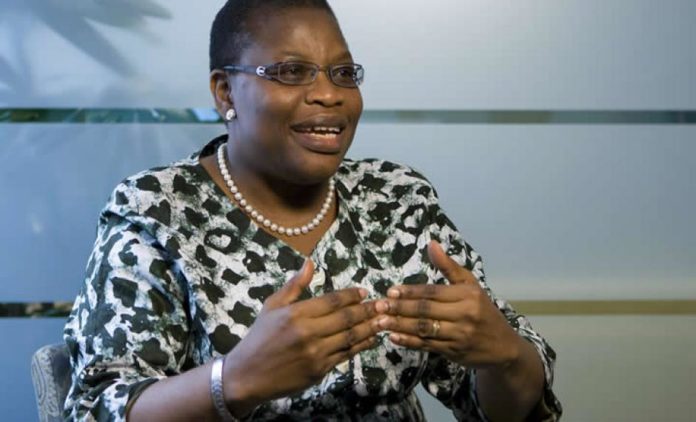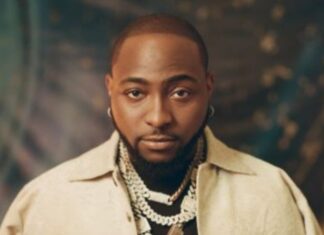By Emeka Alex Duru
Former Education Minister, Dr. Obiageli Ezekwesili, may have initiated a debate that may shape the direction of 2019 politics.
Ezekwesili, in a television encounter in, on Sunday, January 14, 2018, had amplified her pet project of leading a campaign that would see neither the ruling All Progressives Congress (APC), nor the opposition Peoples Democratic Party (PDP), winning the 2019 general elections.
She had earlier tweeted on the essence of her new agenda, stressing, “My political agenda is simple. I shall actively campaign against APC and PDP in the 2019 elections except in rare cases where they field new minds with a strong record of public interest”.
The declaration, which came barely five days after the Independent National Electoral Commission (INEC) had unfolded timetable of activities leading to the 2019 general elections, appears to have captured the mood of Nigerians on the future of the country.
According to the release, Presidential and National Assembly elections will hold on February16, 2019, while Governorship and State Assembly elections will be conducted on Saturday, March, 2, 2019.
It added that the conduct of party primaries, including the resolution of disputes arising from primaries for national and state elections should be conducted between August 18 and October 7.
Commencement of campaign by political parties would be from November 18 for presidential and National Assembly elections, while that for governorship and State Assembly elections, is scheduled for December 1.
Ordinarily, the release by INEC, is expected to have animated the political climate in the country. But investigation by this newspaper, pointed to the contrary. Rather than Nigerians exuding enthusiasm at the prospect of another electoral participation, there has been grave concern on the readiness of the two major political parties in the country – the APC and PDP, in steering the ship of state, aright.
Some, out of exasperation at the obvious lack of focus manifested by the two parties, have called for a Third Force, that would entail politicians from different political organisations forming a coalition to serve as alternative to the two.
Ezekwesili, who served under a PDP-led administration, was not explicit on any agenda at forming another party. Neither did former President, Olusegun Obasanjo nor Presiding Pastor of the Latter Rain Church, Tunde Bakare, who had equally written off the APC and PDP.
Obasanjo, who made show of his exit from PDP by ordering his membership card be torn publicly, had late in November last year, dismissed the two as wobbling, adding that Nigeria needed strong ruling and opposition parties that could sustain the nation’s democracy.
Bakare on his own, had emphasised that the APC and PDP had failed the country, stressing however that despite their obvious inability to rise to the expectations of the citizens, the electorate could still remedy the situation by taking their destiny in their hands in 2019.
None of the commentators, had however been direct on how the feat would be actualised outside the platform of the two parties that essentially encapsulate the dominant political tendencies in the country.
A human rights activist who asked not to be mentioned, however hinted on a possibility of a Third Force in form of a political party, coming up in the days ahead to serve as alternative to the APC and PDP.
In an interaction with our correspondent during a workshop by his organisation in Lagos, he hinted on likelihood of one of the newly registered political parties serving as a rallying point to disenchanted members of APC, PDP and other principled Nigerians to provide the needed leadership.
Reminded that with the release of 2019 timetable by INEC, there would not be time for toying with a new political arrangement, he quipped that nothing is impossible where there is the will.
In his words, “What does it take to come around the whole thing? Are we talking of rocket science? Is it not mere paper work? What and how long did it take to get the APC on board?”
He remarked that with the level of frustration to which Nigerians have been subjected by the APC and PDP, they will be willing to welcome any other political organisation that they consider as offering them hope.
PDP, APC, fail the people
Among unbiased Nigerians, both the PDP and APC, have thoroughly disappointed the electorate in various ways. The two, had incidentally started off on a promising note, but ended up frustrating their supporters.
At its formation on July 29, 1998, for instance, the facilitators of PDP were guided by far reaching visions. They had for instance dreamed of a party that would put the Nigerian nation on a new phase of political engineering.
Part of their intention was to put in place a political platform that would ensure a “re-creation of civil political institutions, reconciliation of Nigeria, rekindling of the spirit of unity and brotherhood in the polity and the revitalization of powers of the people to build a prosperous industrial democracy”.
Their long term aspiration was to erect a frame work that would ensure a just and equitable distribution of power, resources, wealth and opportunities to conform with the principles of power shift and power sharing, rotation of key political offices and equitable devolution of powers to zones, states and local governments so as to create socio-political conditions conducive to national unity and to defend the sanctity of electoral democracy.
To add up, the PDP had in its fold a generous spread of the nation’s first rate politicians.
It also appropriated to itself the tag of the largest party in black Africa, which initially had paid off as it had garnered many electoral victories, though, often questionable in some cases.
But side by side its victories at the polls, the party, in irony of sorts, got entangled in huge internal contradictions and leadership crisis that saw it abandoning the very principles that its founders had advertised.
Thus, by 2015, Nigerians, no longer willing to tolerate the inadequacies of the party, after 16 years, settled for the APC.
As with PDP, the APC rode to power on the crest of massive goodwill and public acclaim. Cashing in on the dwindling public rating of the PDP, the party, had, early in March 2014, made a move that advertised it as taking a decisive step into issue-oriented politics.
In what it presented as a 10-point agenda for a new Nigeria, APC listed areas it would focus on to make life meaningful on getting to power.
Highlights of the presentation included job creation; anti-corruption fight; free; relevant quality education; agriculture; housing plan; and healthcare plan for children and adults.
It also listed social welfare scheme for the less advantaged as well as road, power plant construction, among its priorities.
The perception in some quarters as the incorruptible profile of its presidential candidate, Muhammadu Buhari, added weight to the APC aspiration.
Consequently, seen as the veritable alternative to PDP, Nigerians pitched tent with the APC in an exercise that for the first time in the country’s history, saw an opposition political party taking power form a ruling party.
It did not however take long for managers of the party to expose themselves as merely being interested in power without knowing what to do with it. As a result, barely three years into its administration, APC has virtually lost the goodwill it had commanded among its supporters, hence the clamour for a third force in the build up to the 2019 elections.
How far can the Third Force go?
What many however see as a major obstacle to the Third Force, is the factor of time. Those who reason along this line argue that given the time INEC has allotted for election activities and what it takes to come with a functional political party, coming up with a new organisation, may be herculean.
Some also see the challenge in the politicians not willing to leave their comfort zone for an emerging and uncertain platform.
Head of Department, Politics and International Relations at Lead City University, Dr Tunde Oseni, argues along this line, adding with a touch of emphasis that the 2019 presidential election would be won by either APC or PDP.
He said; “The elite in Nigeria don’t think of what is there for the people. It is what they stand to get. And party structures are largely individualised and not institutionalised. So in 2019 it is either going to be APC or PDP.”
Political Scientist and Public Opinion analyst, Patrick Nwabunnia, holds similar opinion, adding however, that any of the APC or PDP can however play a fast one on the people by adopting paradigm shift in choice of its candidates for the election.
I his words, “The Third Force I can envisage, given the time factor and other demands in election, is any of the two leading parties going for a paradigm shift in choice of candidates. What I am seeing so far, from the two is the same story – recycling old and tired legs.
“Any of them that can go for a new breed without any known baggage, may carry the day. But if it is still the talk on Buhari for APC or any of the old brigade as being mentioned in PDP, we would not make any change”.
Many see the shift in leadership recruitment process, as a more realistic way by any of the parties to win the support of Nigerians and not a third force as in formation of a new political party.











